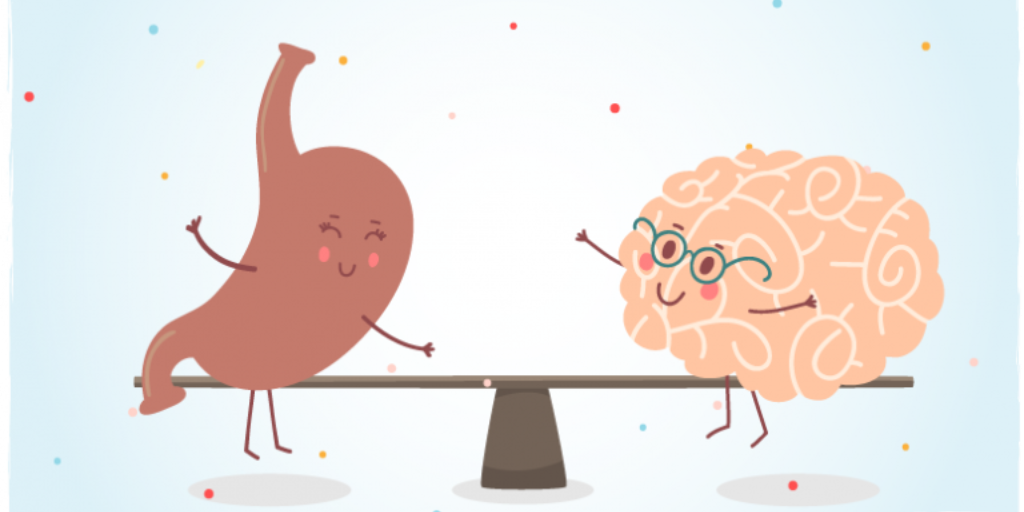Offer
Provide additional details about the offer you're running.

The Truth Behind ‘Gut Feelings’
Sometimes, I get a feeling in the pit of my stomach when something huge is about to take place. It’s happened ever since I was a kid. It can sometimes be caused by dread, by excitement, by nerves, happiness or sadness. For years I thought it was unique to me; this gut feeling. As it turns out, it’s a feeling; a sensation and almost a knowing that all of us have. It all comes down to the existence of a network of neurons (about 100 million) that line our guts and have resulted in the gastrointestinal tract becoming quite commonly known as our ‘second brain.’ [1]
This network of neurons within our gut is technically referred to as the entric nervous system. It is embedded in the walls of the alimentary canal or gastro intestinal tract, all the way from the oesophagus to the rectum. When you consider the fact that the length of this ‘tube’ or tract is around nine metres and completely lined with neurons, it makes sense that its purpose is much more significant than scientists may have initially thought.
While this second brain does not have the same capacity for thought processes as our actual brain, it does serve a very important purpose. Some like to think of it as a partnership. The connection between our ‘first’ and ‘second’ brains allow us to know if something is wrong – or for that matter, if something is right. For example, if you have a leaky gut, your ‘second brain' will send messages via the vagus nerve (which is the longest cranial nerve) to your ‘first’ brain. Likewise, if you are under pressure at work or are encountering too much stress, your brain’s reaction can directly affect the condition of your gut. When you think about it, it makes that gut pain that accompanies a big work proposal make so much more sense.
In a production sense, the main purpose of the neurons within the gut is to control digestion. Studies are beginning to show [2], however, that the symptoms of diseases like irritable bowel and leaky gut syndrome are direct results of messages being sent between our two brains. Previously, it was considered that mood changes and mood disorders such as depression and anxiety escalated the symptoms of these conditions. Recent studies have revealed, however, that conditions like depression and anxiety could well be our gut microbiota’s [3] way of telling the brain (via the vagus nerve) that things are not running as smoothly as we might think.
A large amount of people with irritable bowel and leaky gut suffer from anxiety and depression. The link between out ‘two brains’ may well be the logical explanation [4] as to why that is. There have even been a number of studies and even treatments developed which involve the vagus nerve and depressive symptoms.[5]
So, what are we to do with this information? I offer words that sit well with me and make me feel a little more complete in the hopes they’ll do the same for you;
Knowing our bodies is one thing. Understanding the workings of them is a real gift. Once we understand how our bodies work we can truly begin to live in a way that is full, complete and truly healthy.
I don’t know about you, but I am determined to keep driving to understand what it is my body needs most to make it work to it’s best potential. Understanding my first and second brains is just the tip of the iceberg, but to me, that’s the most exciting part. Possibility and the endless potential to learn and grow. So, I say, look after your gut with the help of Broth of Life… and if you get a feeling in the pit of our stomach– go with your gut. It may well know a lot more than we can ever comprehend.
[1] https://www.ncbi.nlm.nih.gov/pubmed/25664848
Building a second brain in the bowel.
J Clin Invest. 2015 Mar 2;125(3):899-907. doi: 10.1172/JCI76307. Epub 2015 Feb 9. Avetisyan M, Schill EM, Heuckeroth RO.
[2] https://www.ncbi.nlm.nih.gov/pubmed/21040780
Exposure to a social stressor alters the structure of the intestinal microbiota: implications for stressor-induced immunomodulation.
Brain Behav Immun. 2011 Mar;25(3):397-407. doi: 10.1016/j.bbi.2010.10.023. Epub 2010 Oct 30. Bailey MT1, Dowd SE, Galley JD, Hufnagle AR, Allen RG, Lyte M.
Dinan TG1, Cryan JF.
Vagus nerve stimulation for treatment-resistant depression